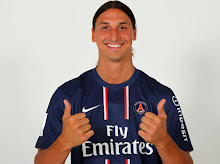The UEFA Champions League (formerly named but still often called the European Cup) is an annual club football competition organized by the Union of European Football Associations (UEFA) for the most successful football clubs in Europe. The prize, the European Champion Clubs' Cup, is considered the most prestigious club trophy in the sport.
The tournament was inaugurated in 1955, at the suggestion of the French sports journalist and L'Équipe editor Gabriel Hanot,[1] as a continental competition for winners of the European national football leagues, under the name of European Cup. In the 1992–93 season, the tournament was renamed to UEFA Champions League and, since then, the competing teams have been the top performing domestic teams of Europe, even though some teams have never been league championships in their respective countries. The UEFA Champions League is not to be confused with the UEFA Cup, the secondary championship for European club teams, nor with the now defunct Cup Winners' Cup. The winner of the tournament qualified for the also defunct Intercontinental Cup (against the winner of the Copa Libertadores of South America), played yearly between 1960 and 2004.
The tournament consists of several stages and begins with three preliminary knockout qualifying rounds. Different teams start in different rounds, according to their position in domestic league and the UEFA coefficients of their league, while the sixteen top ranked teams spread across the biggest domestic leagues qualify directly.
In the subsequent preliminary round, participating teams are paired, with aggregate winners proceeding into the next round. Qualifying rounds span from mid-July to late August. The losers of the third qualifying round are transferred to the UEFA Cup, while the sixteen winners of the final qualifying round are joined by the sixteen teams who have qualified directly, to participate in the group stage.
Teams are drawn into eight groups of four teams, each team playing every other team in the group twice (home and away). The group stage is played between mid-September and early December. The teams finishing third in their groups are transferred to the UEFA Cup, while the top two teams from every group qualify for the next round. Here the sixteen remaining teams take part in the knock-out stage, which starts in late February and ends with the final match in May.
All qualifying round and knock-out ties are two-legged, with each team hosting one match. The team which scores the greater aggregate number of goals qualifies for the next round. The away goals rule applies. Extra time and penalty kicks are used to determine the winner, if necessary. An exception is the final, which is a single match played at a predetermined venue.
The draws are currently structured to ensure that clubs representing the same national association cannot play each other until the quarter-finals. In addition, seeding of the teams according to their UEFA coefficients is used. The competition system has been undergoing changes since the 1991/92 season (see history). The current system was adopted in 2003.
The current holder of the UEFA Champions League trophy is F.C. Barcelona, who beat Arsenal F.C. 2-1 at the Stade de France, in St-Denis, Paris, on 17 May 2006. Barça, however will not be able to retain the title after being defeated in the first knock-out stage by Liverpool F.C., the 2005 champions.
The final of the 2006–07 season will be played at the Olympic Stadium, Athens, Greece, on 23 May 2007
Tuesday, April 3, 2007
UEFA Champions League
Edited by
seaw man
at
6:57 AM
![]()
Subscribe to:
Post Comments (Atom)


No comments:
Post a Comment